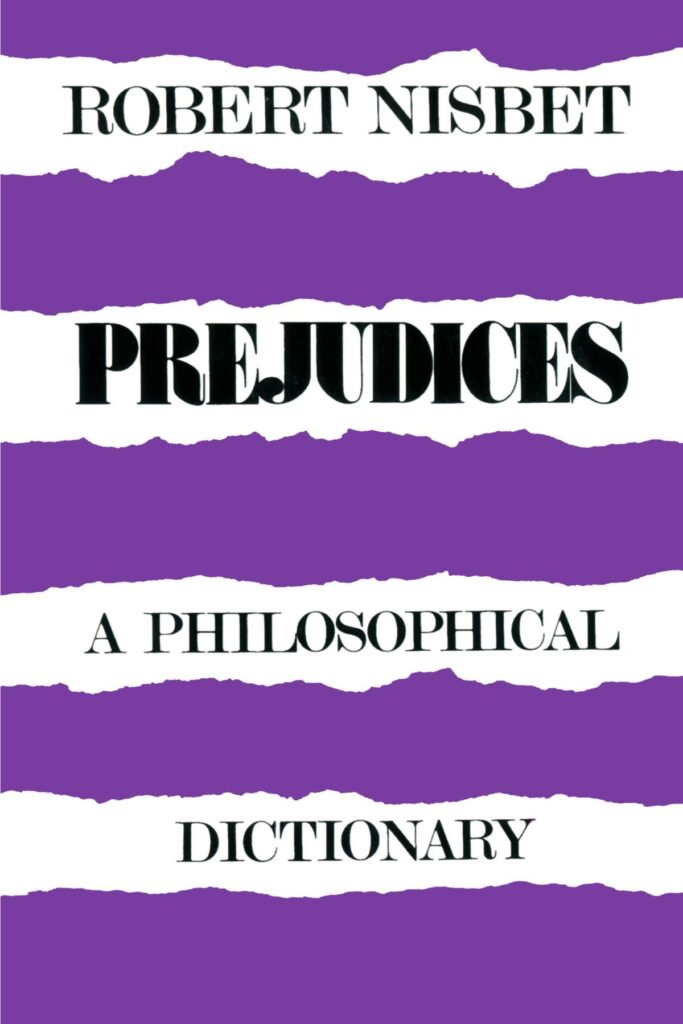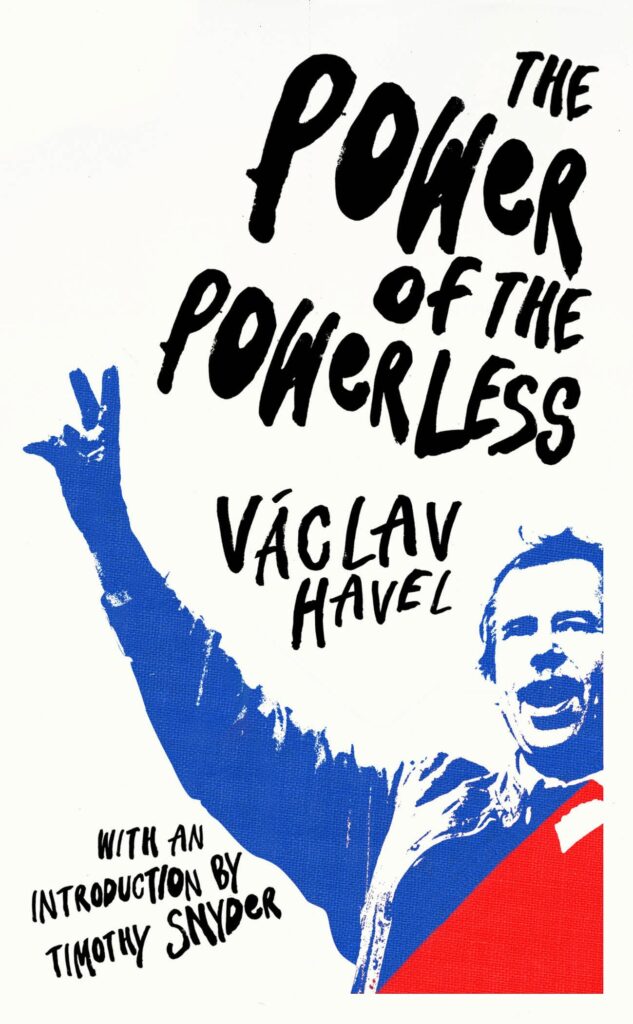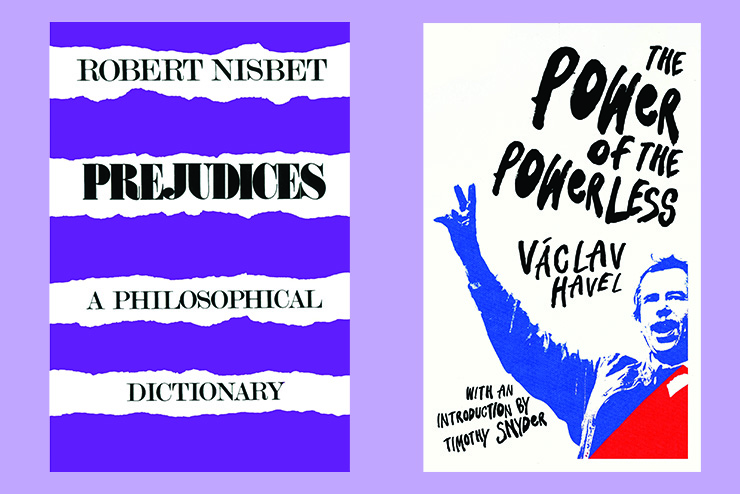
I was in Europe when I learned, just over a quarter century ago this September, of the death of Robert Nisbet. It was there, only a few years earlier, that I had first read him in a French translation of his The Sociological Tradition (1966) that I found prominently displayed on the shelves at the celebrated Librairie Vrin, a stone’s throw from the entrance to the Sorbonne. That I should have discovered this great American conservative thinker abroad, and that I had never come across his work previously as an American graduate student in the same discipline in which he worked, says much about the scholarly world of the United States.
Sometime later I fell upon a copy of Prejudices: A Philosophical Dictionary (1983). Just as The Sociological Tradition is a book every student of that field—and especially those unaware of how wonderfully anti-radical the discipline was at its time of origin—should know, Prejudices should be on every conservative’s bookshelf. It is a book to be devoured entirely and then retained on one’s desk in a position of prominence, ready for quick reference. Its subtitle notwithstanding, it is not a dictionary so much as a delightfully sardonic and intellectually rigorous précis of the core political, cultural, and social concepts of our time.
Nisbet was a splendid writer and especially so for a sociologist, so the loveliness of the prose is one of the many attractions of Prejudices. Here, for example, is his succinct metaphorical summary of the ranks of his fellow sociologists: “There are tall trees to be seen, but also great expanses of dwarfed shrubs, porous soil, poison ivy, and pure weeds.” Alas, today, the tall trees—including Nisbet himself—have mostly been felled, and the weeds have still further proliferated.
The nine-page entry “Humanities” is as thorough and compelling a description of the decline and fall of American higher education over the past century as is possible in such concentrated form. Among other scintillating gems it contains devastating eviscerations of the “academic monstrosity” of creative writing courses: “There is, as a suffering world knows, good writing, bad writing, and creative writing.” And of the post-’60s “introduction of courses, commonly known as workshops, seminars, and encounters, in which students rather than professors generally took charge, and which served as conduits for entirely new languages—psychobabble, ecobabble, ethnobabble.”
The goal of the careful thinker is to read everything on everything. But when one is limited for time, just read Nisbet.
—Alexander Riley

This is an account of how one man through a singular act can overturn a tyranny both within his society and within himself.
Written in 1978 from Communist Czechoslovakia, the dissident playwright Václav Havel, a founder of the Charter 77 human rights movement, sought to articulate the nature of the totalitarian system within which he found himself and to answer a fundamental question: What power, if any, does a common individual have under such circumstances?
Havel describes the predicament he and his fellow countrymen find themselves in: a “post-totalitarian” society. Unlike classical totalitarianism in which power is hard, overt, and centralized, post-totalitarian society is marked by soft, covert, and decentralized power, exacerbated by aspects of mass consumerism and automatism. Participating in a post-totalitarian system is “living within a lie,” Havel wrote, “For by this very fact, individuals confirm the system, fulfill the system, make the system, are the system.”
To describe the effect of post-totalitarian society on everyday man, Havel tells the story of a greengrocer who dutifully places a socialist “Workers of the World Unite!” sign in his storefront window each day. He does this not out of a sincere belief in the sign’s message, but because this act socially signals “I am obedient and therefore I have the right to be left in peace.” (Does this remind anyone of the ubiquitous “Black Lives Matter” signs in Democrat neighborhoods?) Havel then asks us to consider what it would mean if the greengrocer one day refused to put up the sign and thereby refused to play along with the system’s lies.
This act of defiance would surely put at risk the greengrocer’s reputation, if not his job, his livelihood, his own and his family’s well-being, or worse. But this act would nonetheless constitute a reclaiming of personal dignity and a kind of spiritual protest. The greengrocer would, as Havel puts it, be “living in the truth.”
Furthermore, the greengrocer’s act would also start to dissolve the metaphysical “glue” that holds it together—the consent of the public through fear and intimidation. It would inspire others to disobey as well. This is the answer to the fundamental question Havel asks at the outset: post-totalitarian subjects have more power than they realize. The system is brittle; courage is contagious.
Havel’s insights are just as important today. He reminds us that we are all the greengrocer; tyranny lies within, and we are never truly powerless as long as we choose to live within the truth.
—Michael Robillard

Leave a Reply